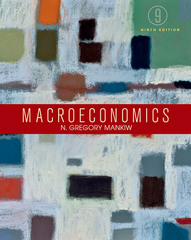Question
peers by providing examples from the news of oligopolistic markets. Compare and contrast with examples of monopolistic competitive markets. This simulation is tricky because you
peers by providing examples from the news of oligopolistic markets. Compare and contrast with examples of monopolistic competitive markets.
This simulation is tricky because you just have to trust what the other people will choose in order to get your best profit. I played all 3 rounds a bit different. The first round that I played, I used the first turn to go lower and the next two turns to go right in the middle with the barrels produced. My overall profit was $96. The next round I stayed in the middle for all three turns by producing 5 barrels. My overall profit was $85. The last round I decided to go a bit higher with the first two turns and back to 5 for the last one. My overall profit was $106. Overall I thought it helped demonstrate the fact that working together to all produce the same does not work with the oligopoly due to the incentive for someone to raise their own profits.
The different rounds definitely demonstrated the interdependence feature of the oligopolistic market. Especially in my second round, I did not change the number of barrels I produced. However due to the other couple firms, my profits changed every turn. The profits are all connected to each other whether the firms like it or not. Another feature is that it is hard to enter the market. There are few dominant firms controlling everything. If another were to enter, the profits and numbers would be thrown off.
Ogliopolies tend to set their prices using the prisoners dilemma. They need to debate the potential outcomes and choices of the other firms to choose the best overall strategy for themselves. Things that might effect their decision would be if this is a one-time collaboration or if this will keep going. Firms tend to not take the personal advantage if they will have to continue to work with the other firm, simply so the other firm will not do the same to them. That is one way the invisible hand helps guide their choices to get to the set price point.
There are a few ways to distinguish a firm in an oligopolistic market from a monopolistic competitive market. For example, I will use car companies such as Toyota, Ford, and General Motors and fast food chains such as McDonald's, Wendy's and Burger King. With the automobile industry there are a few companies that dominate the industry. They try to distinguish themselves through innovation and differentiation throughout their products. If one company raises the quantity of trucks they produce it will affect all of the company's prices. The automobile market is an oligopoly market. On the other hand, with the fast food industry, there are many competitors in the market. They offer very similar products and mainly distinguish through brand loyalty and advertisement of their products. If one company raises their prices, the others are likely to keep the same price and gain new consumers that chose not to go to the higher priced company. The fast food market is monopolistic competitive.
Step by Step Solution
There are 3 Steps involved in it
Step: 1

Get Instant Access to Expert-Tailored Solutions
See step-by-step solutions with expert insights and AI powered tools for academic success
Step: 2

Step: 3

Ace Your Homework with AI
Get the answers you need in no time with our AI-driven, step-by-step assistance
Get Started


